The Ultra-Fex was made by FEX (French EXport), later Fex-Indo (Industrie Optique). According to McKeown's, there was a Fex camera in 1944,
in 1945 a Superfex with an optical finder and in 1946 or 1947 the
Ultra-Fex. They all have the same distinct Art-Deko bakelite body. There was a variety of slightly different models and it stayed in production until 1966.
It is unclear, why the French company chose the American 620 format,
mainly made by Kodak, whereas 120 film from multiple companies was
widely available in Europe. So only 620 film is usable (or re-spooled
120 film). The 620 spool must be an old metal type one that has a hole
right through to take the feed side spindle. Modern plastic spools will
not work.
Its main features are:
90mm meniscus lens,~ F11, F16, focus free, 1.5m-∞
Shutter B, 1/100
Size 155x87x75mm Weight 350gr.
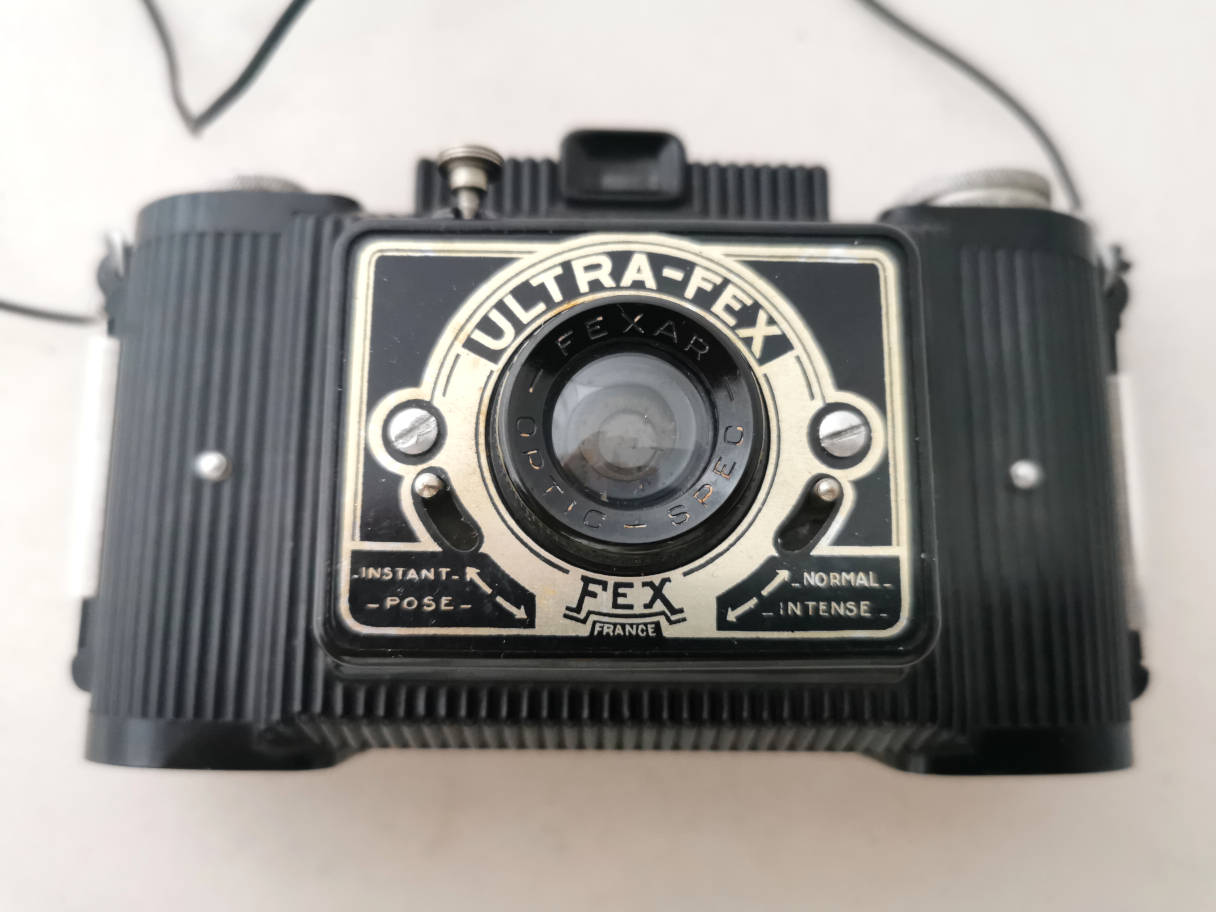
Camera
front. Lens, viewer, shutter release. Under the lens: switch for single
shutter speed or B and aperture switch ~ 11 and 16, "intense" refers to
the light, so the smaller aperture is on the intense side. There were
versions with 2 shutter speeds and versions with a PC flash socket.
Sometimes the first metal ring behind the lens is painted blue to
imitate a lens coating.
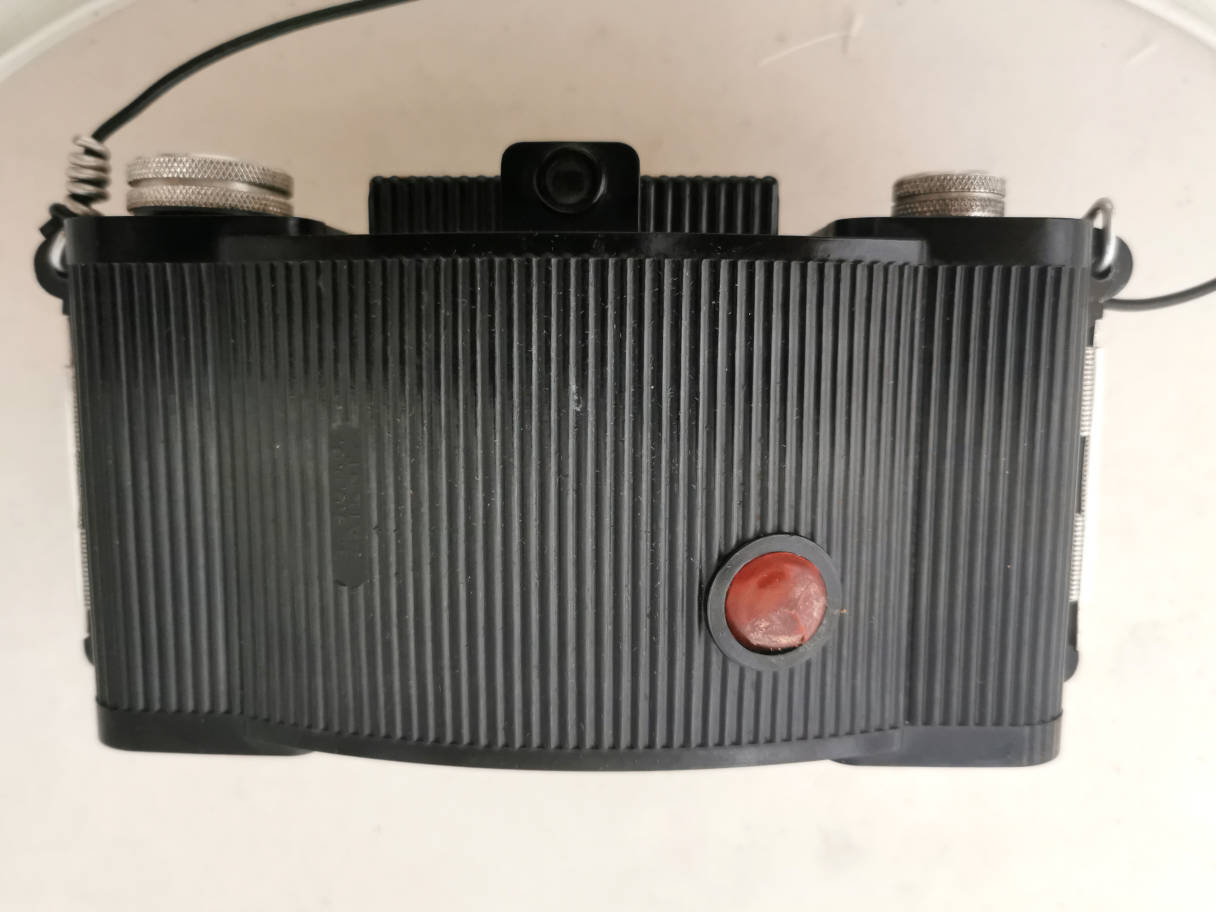
Camera
back. Viewer and red window.
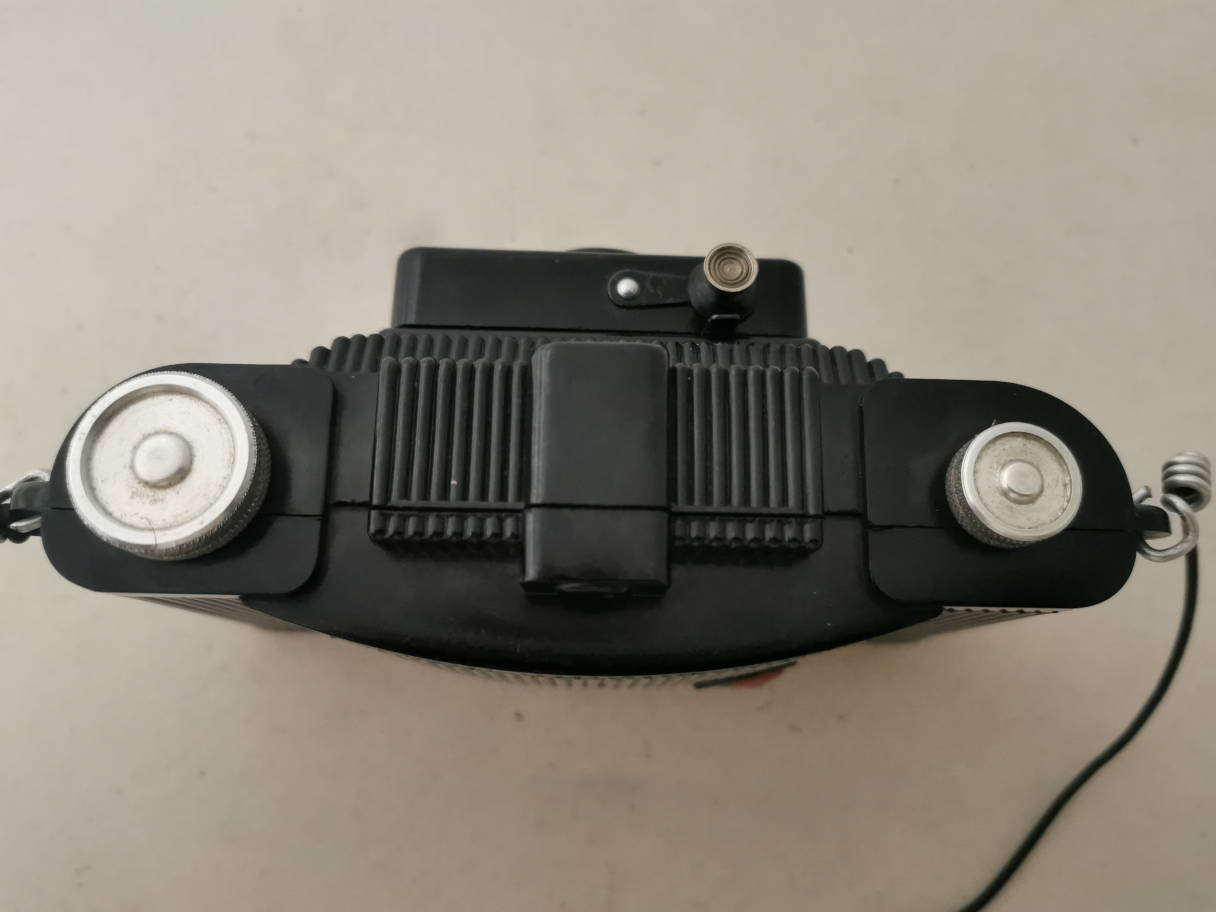
Camera
top, not extended. Film wind. Shutter locked. The film feed side
is a spindle, that screws from the top right through the spool into the
bottom.

Camera extended. The red arrow has to be visible.
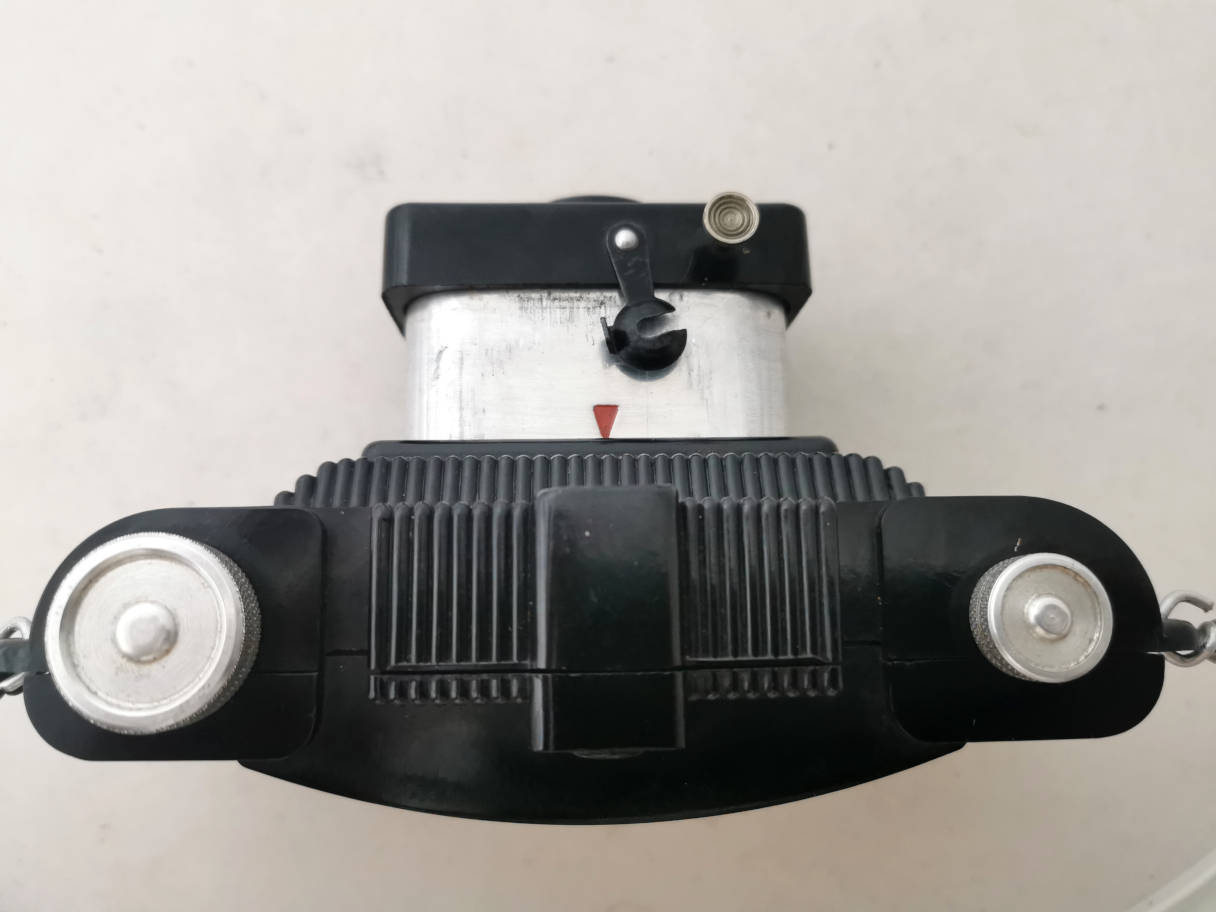
Shutter lock open.
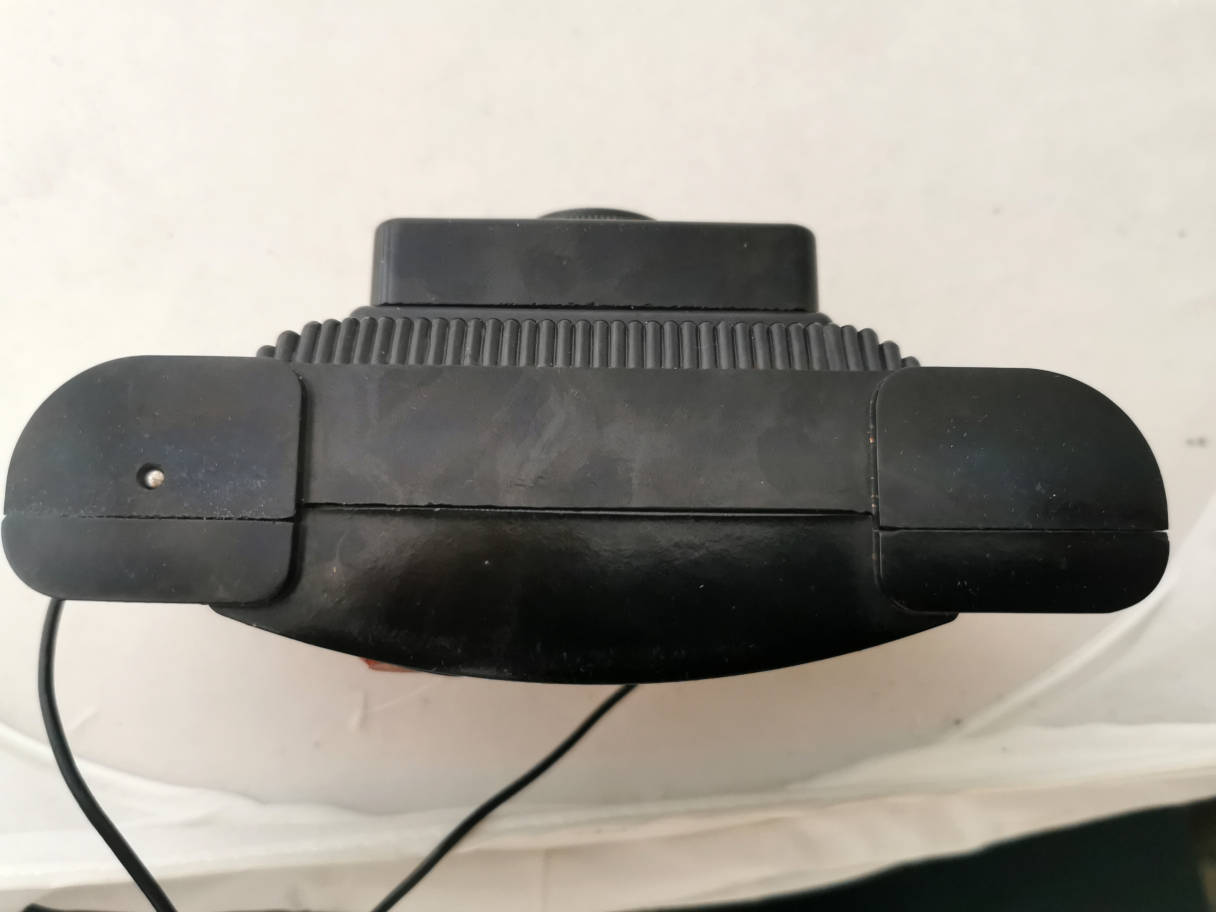
Camera bottom. Nothing to see, no tripod socket, would however make sense as there is a B setting.
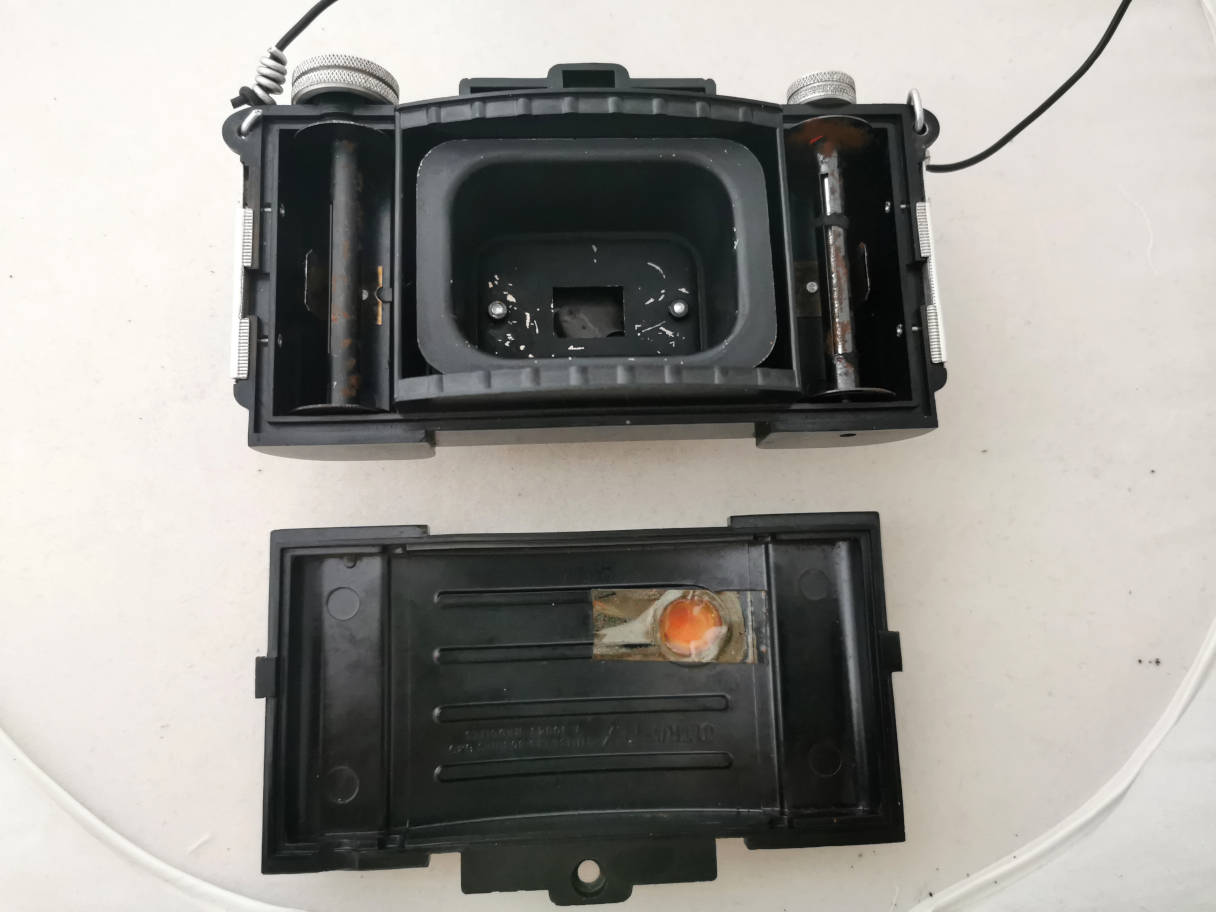
Back deposed. You have to slide down the brackets on both sides.
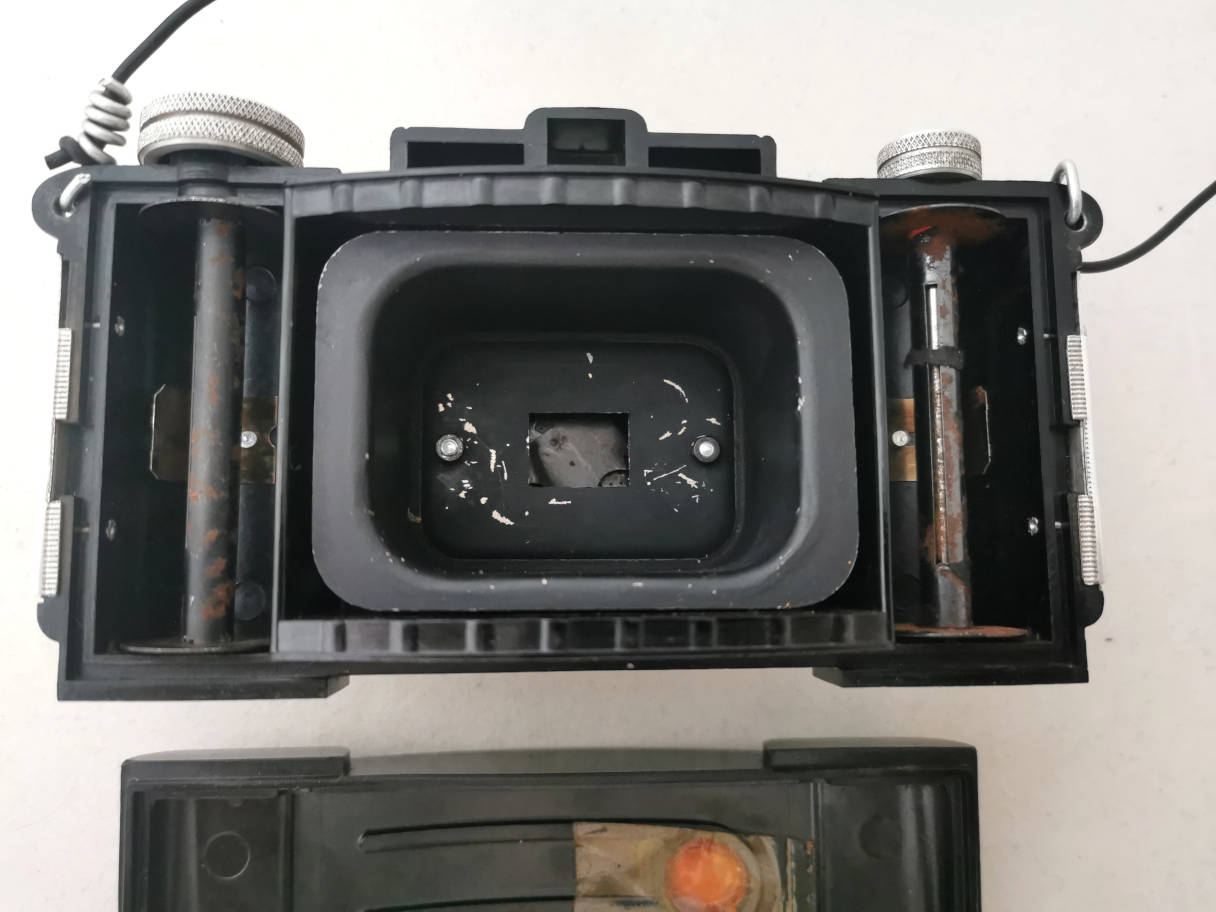
Film compartment. Note the curved film plane. It avoids vignetting of the simple meniscus lens.
These
are the ultimate basics of a roll film camera, focus free, single
shutter speed
and 2 aperture. Point and shoot only. If you choose the right
film, ISO 400 in general and ISO 200 on very sunny days, you can shoot
outside photos that look o.k.. The rest will be "Lomo" style. Seen the
price of 620 film I would not run a roll through it. It was given to me
by a friend, just for free. It's more an item for collectors of
beautiful bakelite cameras.







